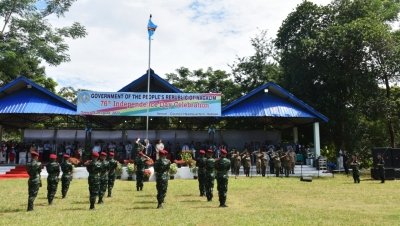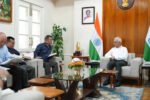HT Correspondent
DIMAPUR, Feb 12: Civil society organisations (CSOs) have decided to press for lifting of the Nagaland Liquor Total Prohibition (NLTP) Act 1989 from the Dimapur district.
The CSOs held a meeting under the aegis of the Naga Council Dimapur (NCD) at its office here on Monday to deliberate on the two representations submitted to the Nagaland Governor for lifting the Act in Dimapur.
Addressing the media after the meeting, NCD president Etsungmomo Kikon said, the CSOs at the meeting resolved to take up the issue with the state government.
He said though the representations were submitted to the Governor, they could not meet the him in person.
Besides the NCD, Kikon said, the Dimapur District GB Union, Naga Women Hoho Dimapur, Dimapur Urban Council Chairmen Federation, Dimapur Naga Students Union, Eastern Naga Students Union Dimapur, Business Association of Nagas, Dimapur District Citizens Forum, etc. attended the meeting.
He also said the meeting formed a committee and endorsed and authorised the Dimapur Urban Council Chairmen Federation to pursue the matter with the government.
Kikon added that all the presidents of CSOs of Dimapur will be members of the committee with whom the Dimapur Urban Council Chairmen Federation will further hold consultations on the issue.
DUCCF president Zasivikho Zakiesato said the federation has been given the responsibility to look into the three-decade old matter.
“We will have to have a lot of consultations with the civil society leaders on the issue,” he said.
He added that every section of the society in Dimapur will be consulted to put pressure on the government to lift the liquor prohibition in Dimapur district.
The NLTP Act 1989 was enacted in the year 1989 by the Nagaland Assembly and came into force in 1990 following pressure from the churches and CSOs to ban all liquor products and businesses.
The Dimapur Urban Council Chairmen’s Federation conducted research in 2023 on the non-implementation of the Act, particularly in and around Dimapur district, and its adverse impact on the citizens of Nagaland.
The federation observed that the Act has failed on all counts and that the public has become unfortunate victims and not the beneficiaries, as originally envisaged in the Act.












